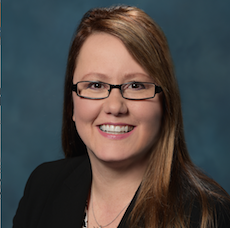
New contenders are challenging staffing as the issue most top-of-mind for senior living operators, according to participants in a panel discussion at the Oct. 15 NCAL Day that preceded the American Health Care Association/National Center for Assisted Living’s 68th Annual Convention in Las Vegas.
“What keeps you up at night?” session moderator Pat Giorgio, president and CEO of Evergreen Estates of Cedar Rapids, IA, asked panelists.
“It used to be that I was worried about our staffing,” said Steve Heaney, CALA, vice president of operations and real estate for Mount Laurel, NJ-based Brandywine Senior Living.
Competing for workers with other senior living operators — as well as supermarkets and fast food restaurants that pay more for less labor-intensive work — remains a challenge, he said. “But I would say now what keeps me up at night is more the emergency preparedness stuff,” Heaney added. “Everything we’ve just seen recently go on in Florida and Houston [with Hurricanes Irma and Harvey, respectively], and in New Jersey we experienced Hurricane Sandy. And it’s things that happened here in Las Vegas, active shooter. You hear a lot about active shooters these days.”
The Mandalay Bay in Las Vegas, the site of this year’s AHCA/NCAL meeting, was the location from which a gunman just two weeks earlier shot at and killed 58 attendees at a nearby country music festival; more than 500 also were injured.
“Knee-jerk” legislation and executive orders after the “horrible situation” in which 14 residents of a rehabilitation facility in Florida died after the facility lost air conditioning in Hurricane Irma, Heaney said, are similar to what New Jersey senior living operators experienced after Hurricane Sandy in 2012.
The rules announced Sept. 16 by Florida Gov. Rick Scott gave all assisted living communities and nursing homes in the state 60 days to obtain generators and enough fuel to sustain operations for at least 96 hours following a power outage. Florida associations representing providers filed legal challenges, maintaining that the timeframe isn’t sufficient, but an appellate court appellate court Thursday (after NCAL Day) rejected their challenge. Brandywine does not operate communities in the Sunshine State, but Heaney said he agrees with the associations’ concerns about timing based on what he learned in New Jersey after Hurricane Sandy.
“You have to have an electrical engineer come in and do a study. They build the generator to the specification of the electrical engineer. You have to find the labor, then you have to have it installed. It’s a one-year process, and with everything going on in Florida, where are you going to find the manpower?” he said.
Members of the Senate Special Committee on Aging introducing a bill to create a committee to advise local, state and government officials on how to prepare and care for older adults during emergency situations, and the Centers for Medicare & Medicaid Services issuing rules related to home- and community-based services provided by assisted living operators and others, represent “a crack in the door for the federal government” to start regulating assisted living as it regulates nursing homes, he said.
“They’re so federally regulated now, and look at their reimbursements,” Heaney said of skilled nursing facilities. “I don’t know how a lot of our brothers and sisters on the long-term care side are going to survive.”
Events prove the need for data to verify to others the successes that assisted living communities already are having in providing care and services for older adults, he said.
Ashley Blankenship, BBA, vice president of operations and owner of Southridge Village Assisted Living in Arkansas, agreed about the threat of federal regulation and the importance of data collection.
“Steve pretty much hit on it,” she said. “We had home- and community-based services and CMS potentially stepping in to your operations of your businesses. I don’t even think it’s a crack. We’re already receiving letters from federal legislators asking for data on assisted living. This is already happening, and it has been happening, and it is something that we need to be concerned about, because the data is going to be required.”
All assisted living operators should be concerned if they aren’t collecting data electronically to prove their performance to potential healthcare partners and others, Blankenship said. “Data collection is going to be vital in the very near future — actually, it’s already vital now,” she said.
Beyond emergency preparedness and potential federal regulation, however, workforce issues remain big in assisted living, Blankenship said.
“The nursing home down the street is fighting for the CNAs that you have and you’ve trained, especially if they’ve been on your memory care and been certified,” she said. “And …you’re in a horrible, competitive arena with national corporations for staff, and you may be a small provider. And so you do have to provide benefits and flexibility to your employees that there’s no way a large corporation or some of your competitors can provide. …We’re going to have to look at [staff member] wants and needs. They’re a consumer just like your residents are, and that’s what we have to think about.”
Ed McMahon, Ph.D., vice president of quality for McLean, VA-based Sunrise Senior Living, said that workforce issues remain his top area of concern, although he said he agreed that Heaney and Blankenship raised important issues.
“My biggest fear is with the staffing issues, especially in markets like Dallas or San Francisco, where there’s not just the $15 minimum wage. You have to at least meet that or beat that, but then there’s that ripple effect for everyone else that’s working in those communities. And we’re dealing with people who are food-insecure as our primary caregivers. …All of this is really our workforce, and where are we going to be with the explosion of the boomers in another 20 years? I don’t know. It keeps me up at night.”
Lois A. Bowers is senior editor of McKnight’s Senior Living. Follow her on Twitter at @Lois_Bowers.

